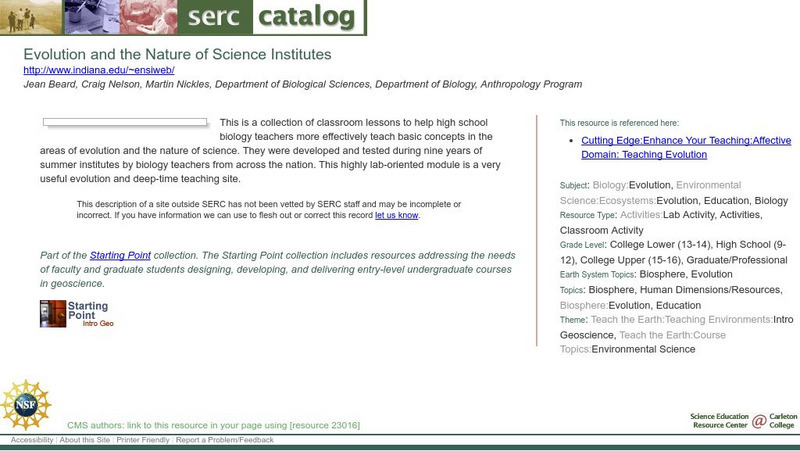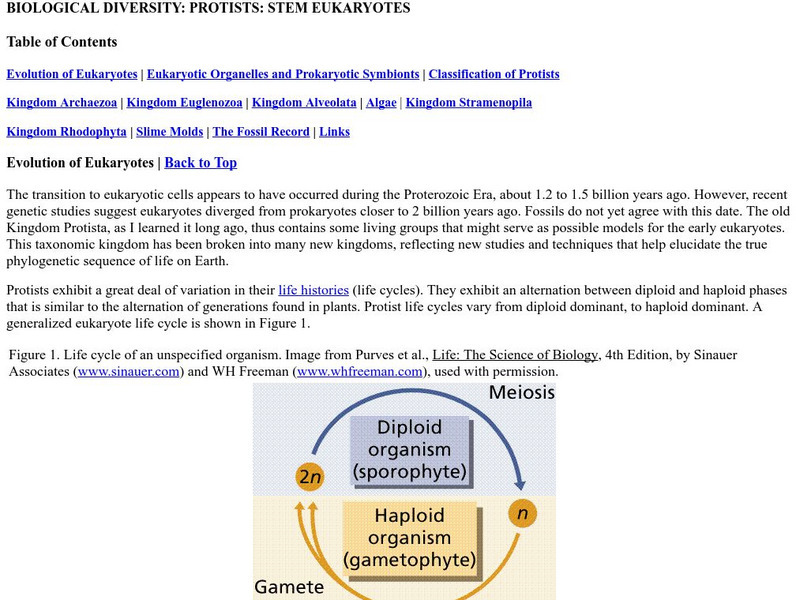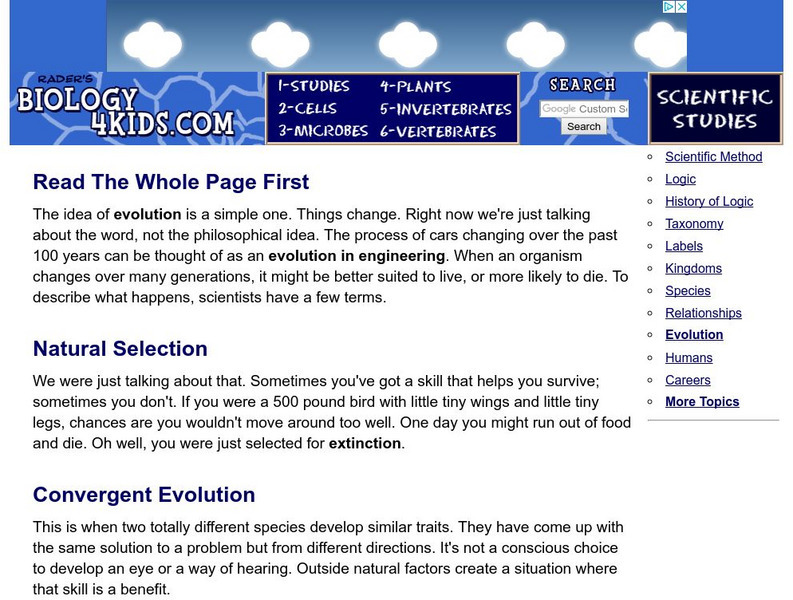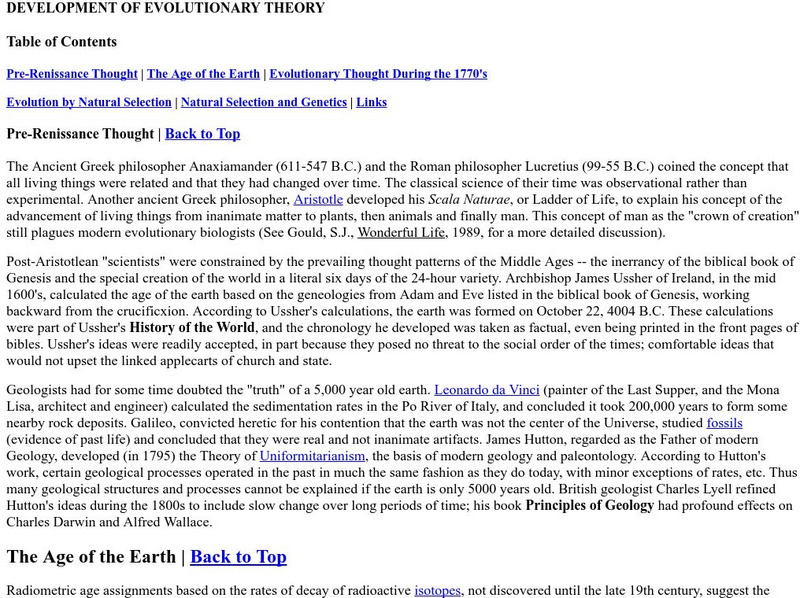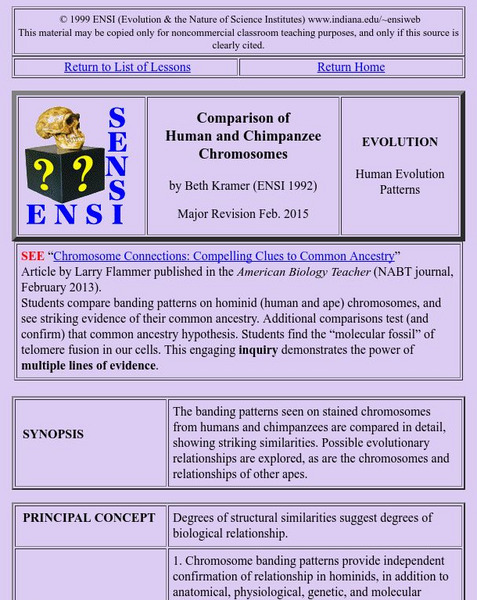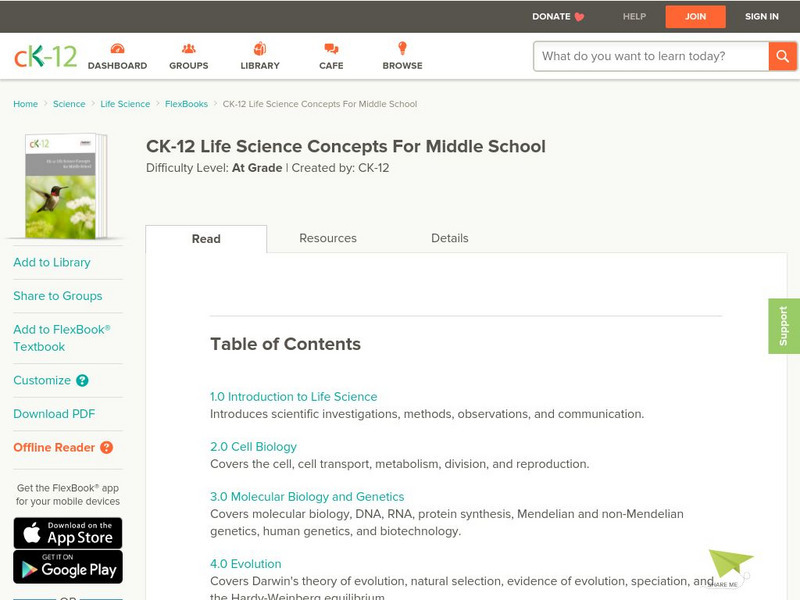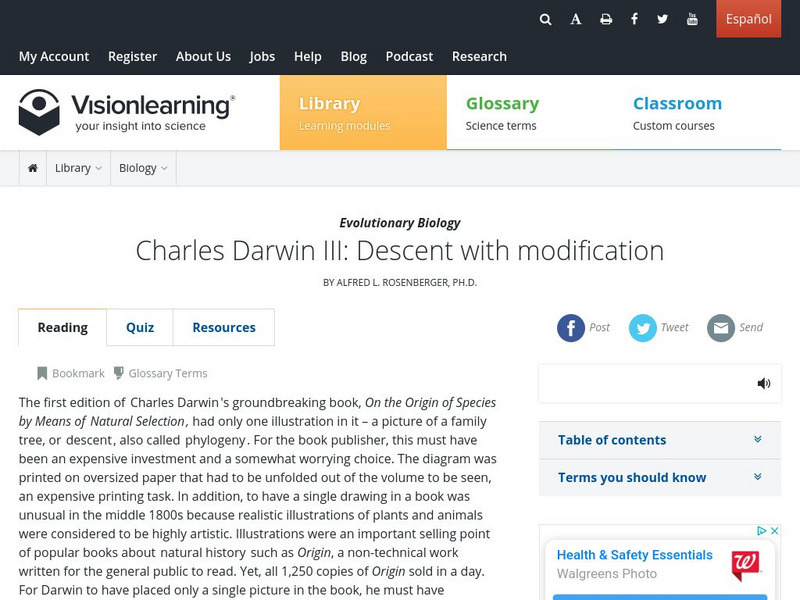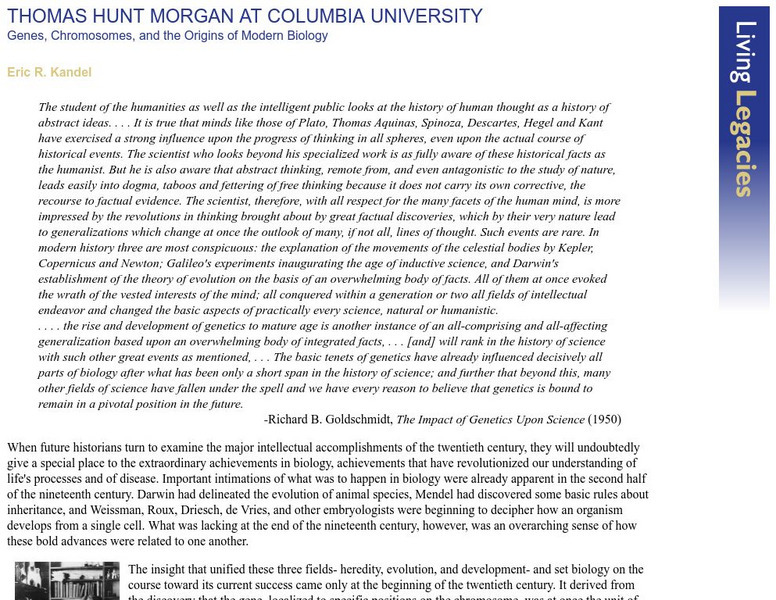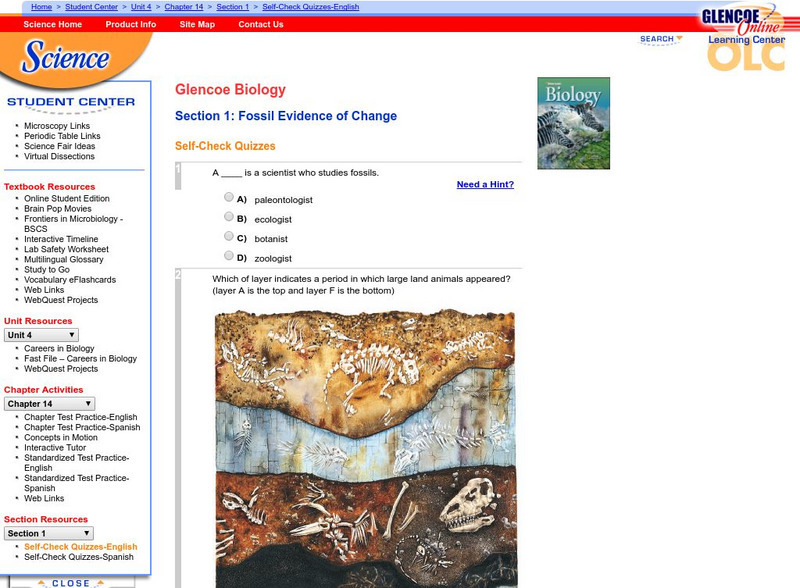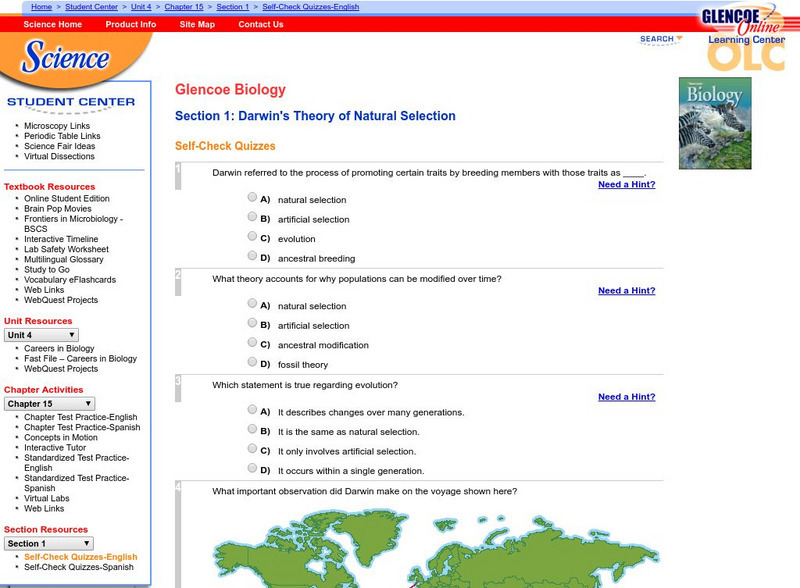Science Education Resource Center at Carleton College
Serc: Evolution and the Nature of Science Institutes
A collection of classroom lessons to help high school biology teachers teach evolution and the nature of science. This highly lab-oriented module is a very useful evolution and deep-time teaching site.
McGraw Hill
Glencoe Biology: Hominoids to Hominins: Self Check Quiz
Answer these five multiple-choice questions about human evolution. After answers are submitted, students can review their mistakes.
McGraw Hill
Glencoe Biology: Human Ancestry: Self Check Quiz
A five question, self-checking concept check over human ancestry and evolution.
Estrella Mountain Community College
Online Biology Book: Biological Diversity: Protists: Stem Eukaryotes
Through full-color images and descriptive information, learn about the evolution of the eukaryotic organisms which eventually led to the presence of protists.
Other
The Evidence for Evolution: Biogeography
These pages are part of a site called "Evolution," that accompanies a textbook by the same name. Mark Ridley is the author. These pages are about the house sparrow and the differences that can be observed in it in different geographical...
BiologyWise
Biology Wise: Examples of Analogous Structures
Explains that analogous structures are ones that are similar in different organisms yet have no common ancestry. This type of phenomenon occurs with convergent evolution. Includes lots of examples for both animals and plants.
PBS
Pbs Learning Media: Hummingbird Species in the Transitional Zones
This video segment from Evolution: "Darwin's Dangerous Idea" shows biologists Chris Schneider and Tom Smith studying hummingbirds and other animals in Ecuador. Their research is investigating the processes by which new species are formed.
Other
Evidence for Evolution: Genetic Code
These pages are part of a site called Evolution that accompany a textbook by the same name. Mark Ridley is the author. In this section: the universal genetic code provides evidence that life has a common ancestor.
National Science Foundation
National Science Foundation: Evolution of Evolution: 150 Years of "On the Origin of Species"
When the "Origin of Species" was published in 1859, the ambitions and scopes of science were dramatically expanding. "Origin of Species" marked the transition of biology from a prescience to a science. [4:04]
Other
Evogeneao: Evolution: All in the Family
A website created to promote the teaching of evolution. The website features a Tree of Life that helps evolution be understood at a glance.
Biology 4 kids
Biology4 Kids: Evolution
Read a brief, but clear description of the three evolutionary processes that occur in species over time.
Estrella Mountain Community College
Online Biology Book: Paleobiology: Fossils and Time
Find out how fossil evidence has been the major link to learning about Earth's geologic history. See several illustrated interpretations of a geologic time scale in this online biology textbook.
Estrella Mountain Community College
Online Biology Book: Development of Evolutionary Theory
Using diagrams and descriptive illustrations, this college-level biology reference book discusses the development of evolutionary theory.
Indiana University
Ensi: Comparison of Human: Chimpanzee Chromosomes Lesson
This is a great lesson plan that combines Karoytypes and evolution. Students will recognize that the chromosomes of chimpanzees and humans are remarkably similar, then correlate that to their evolutionary relationship.
Khan Academy
Khan Academy: Darwin, Evolution, and Faith
Can ancient scriptural accounts of the world's creation by God be reconciled with Darwin's new story? This article looks at three responses to this question: Conflict, Contrast, and Convergence.
CK-12 Foundation
Ck 12: Episd: Prokaryote Evolution
[Free Registration/Login may be required to access all resource tools.] Discover three ways to classify cells and understand what prokaryotic cells are.
CK-12 Foundation
Ck 12: Flex Book Textbooks: Life Science Concepts for Middle School
[Free Registration/Login may be required to access all resource tools.] A complete, web-based, multi-media textbook covering a wide variety of Biological science concepts for middle grades.
Vision Learning
Visionlearning: Biology: Charles Darwin Iii: Descent With Modification
Instructional module focusing on Charles Darwin's theory of Descent with Modification. Discusses how slight changes from parent to offspring create variation and potentially create new species over time. Site also includes an interactive...
Howard Hughes Medical Institute
Hhmi: Biointeractive: Visualizing Gene Expression
Through a series of videos and narrated animations, learn how evolution affects gene expression in species. Find out how visualizing gene expression can help explain what a specific gene does.
Columbia University
Columbia University: Thomas Hunt Morgan
The site promotes the importance of Morgan and his experiments in genetics with fruit flies on the field of biology.
National Health Museum
Nhm: Amino Acid Sequences Show Evolution
This lesson plan focuses on differences in the amino acid sequence of hemoglobin and myoglobin proteins. They use the number of differences to create a phylogenetic tree.
National Health Museum
Access Excellence: Molecular Biology/primate Phylogeny
This lesson plan involves comparison of amino acids to create a phylogenetic tree of primates. Learners will also use other species information to draw conclusions about evolutionary relationships.
McGraw Hill
Glencoe Biology: Fossil Evidence of Change: Self Check Quiz
Try these five multiple-choice questions about fossil evidence of change. After submitting answers, students can review the material.
McGraw Hill
Glencoe Biology: Darwin's of Natural Selection: Self Check Quiz
Try these five multiple-choice quiz questions about Charles Darwin's Theory of Natural Selection.


